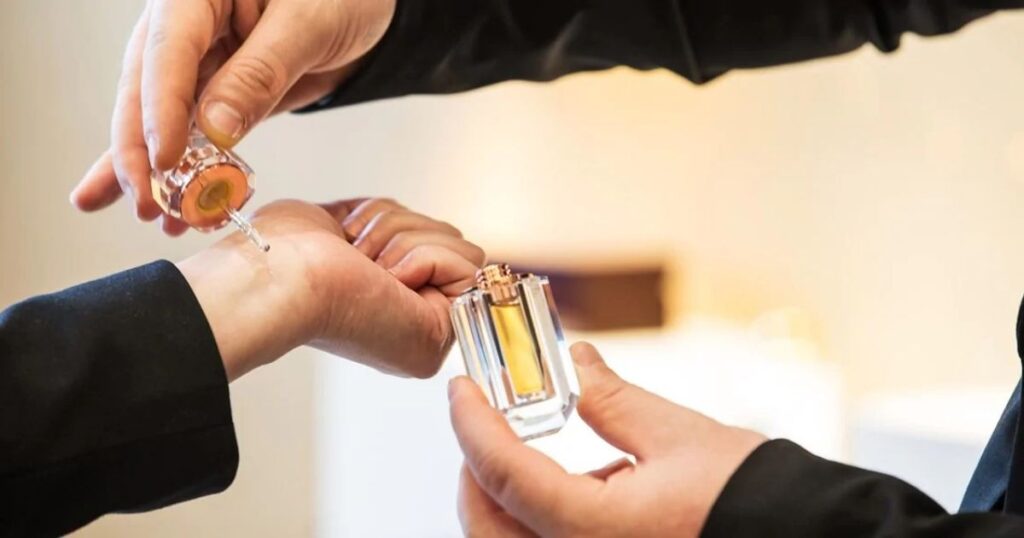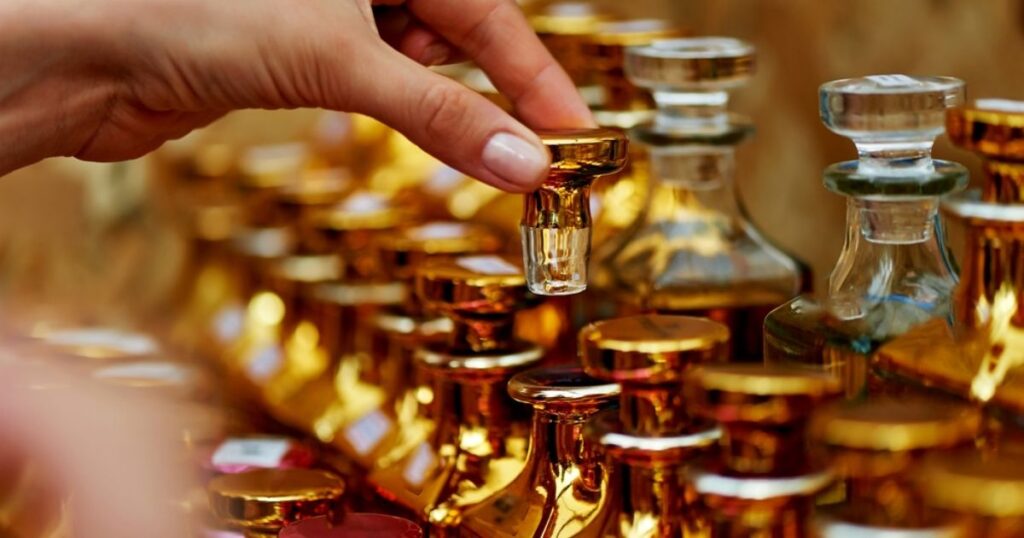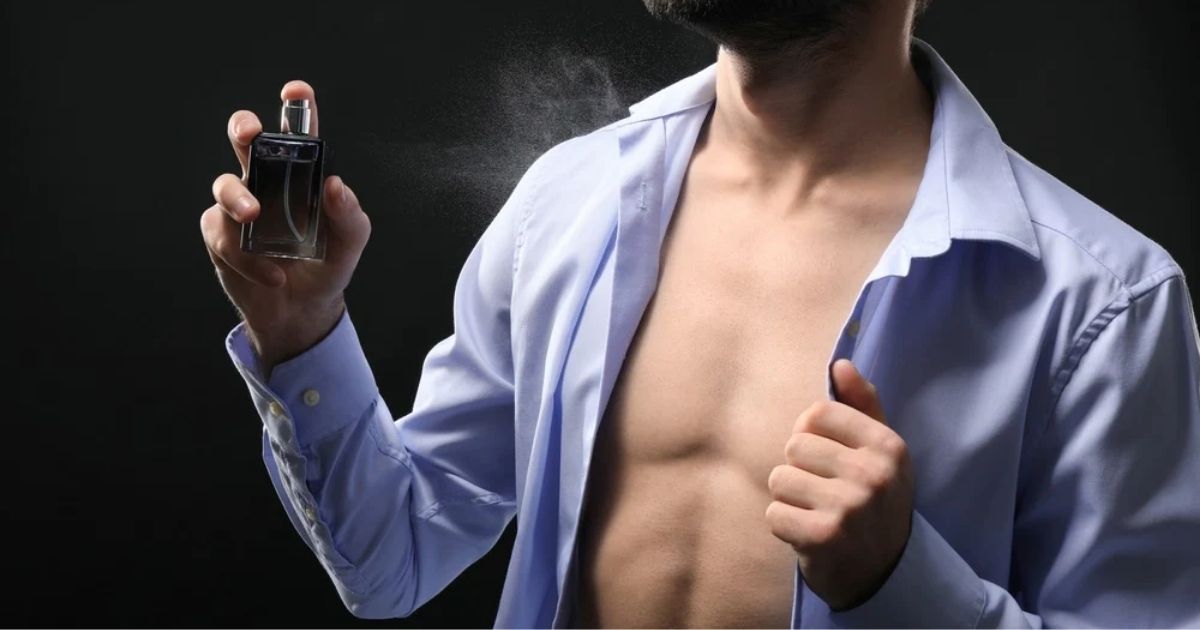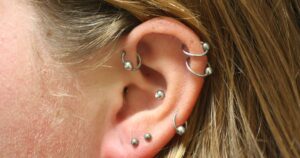Discover the intriguing world of perfume chemistry as we unravel the mystery behind that perplexing alcohol smell in your fragrance. In this informative article, we will delve into the role of alcohol in perfumes, exploring the factors that can influence its scent and debunking common misconceptions. Gain valuable insights on choosing alcohol-free alternatives and learn expert tips to minimize the alcohol smell. Join us on this olfactory journey to enhance your fragrance experience and feel a true sense of belonging in the realm of perfumery.
Key Takeaways
- Alcohol in perfumes contributes to longevity and diffusion of the fragrance.
- The quality and sourcing of the alcohol used can influence the smell of alcohol in perfumes.
- Alcohol is not solely responsible for the strong scent in perfumes.
- Choosing alcohol-free perfumes can provide a safer and longer-lasting fragrance experience.
The Role of Alcohol in Perfumes
Frequently, alcohol plays a vital role in the formulation of perfumes, contributing to their longevity and diffusion. Alcohol acts as a carrier for the fragrance oils, allowing them to evaporate slowly and release their scent over an extended period of time. It also helps to disperse the fragrance molecules evenly, ensuring a well-rounded and balanced aroma. Understanding the chemistry behind perfume alcohol further illuminates the intricate process of creating a captivating and long-lasting scent.
Understanding the Chemistry Behind Perfume Alcohol

The composition of perfume alcohol is a complex amalgamation of various chemical compounds that interact to enhance the fragrance and performance of the scent. Alcohol serves as a solvent, helping to dissolve and disperse the aromatic components of the perfume. The most commonly used alcohol in perfumes is ethanol, which is derived from natural sources like grains or fruits. Ethanol evaporates quickly, allowing the fragrance to be released into the air, while also providing a cooling effect on the skin.
Factors That Can Influence the Alcohol Smell in Perfumes
Several factors can influence the alcohol smell in perfumes. One of the main factors is the quality and sourcing of the ingredients used in the perfume. If low-quality or impure alcohol is used, it can contribute to a stronger alcohol scent. Additionally, the storage and oxidation of the perfume can also affect its smell, as improper storage or prolonged exposure to air can lead to the breakdown of certain compounds and an increase in the alcohol smell.
Ingredient Quality and Sourcing
One factor that can influence the alcohol smell in perfumes is the quality of the ingredients used. The ingredients in a perfume can vary greatly in terms of their purity and source, which can impact the final scent. Here are three ways in which ingredient quality and sourcing can influence the alcohol smell in perfumes:
- The use of synthetic ingredients: Perfumes that contain a higher percentage of synthetic ingredients may have a stronger alcohol smell due to the chemical nature of these compounds.
- Natural ingredient extraction methods: The process of extracting essential oils from natural ingredients can also affect the alcohol smell in perfumes. Different extraction methods can result in variations in scent and alcohol content.
- Sourcing of ingredients: The quality and origin of the ingredients used can impact the alcohol smell in perfumes. Ingredients sourced from different regions or climates may have distinct characteristics that can contribute to the overall scent, including the alcohol note.
Understanding how ingredient quality and sourcing can influence the alcohol smell in perfumes is crucial for both perfume manufacturers and consumers. It allows for better control over the final product and ensures that the desired scent is achieved. Now let’s explore another factor that can contribute to the alcohol smell in perfumes: storage and oxidation.
Storage and Oxidation
To fully understand the factors that can influence the alcohol smell in perfumes, it is important to consider the role of storage and oxidation. Proper storage of perfumes is crucial in maintaining their scent integrity. Exposure to heat, light, and air can lead to oxidation, which can result in the alcohol smell becoming more prominent. Oxidation occurs when the fragrance molecules react with oxygen, causing a chemical change in the perfume. Now, let’s delve into some common misconceptions about alcohol in perfumes.
Common Misconceptions About Alcohol in Perfumes
Many people hold the misconception that alcohol in perfumes is solely responsible for the strong scent and potential irritation, but this is not entirely accurate. While alcohol does contribute to the fragrance and acts as a solvent for the perfume oils, it is not the only factor affecting the scent. Here are three common misconceptions about alcohol in perfumes:
- Alcohol evaporates quickly: While alcohol does evaporate rapidly, it helps disperse the fragrance molecules, allowing them to be released gradually over time.
- Alcohol causes skin irritation: Although alcohol can be drying to the skin, it is not the main cause of irritation. Other ingredients, such as essential oils or synthetic compounds, may be responsible.
- Alcohol is harmful to health: The alcohol used in perfumes is denatured, which means it contains additives to make it unfit for consumption. It is safe to use on the skin in normal amounts and poses no significant health risks.
How to Choose Alcohol-Free Perfumes

When it comes to choosing alcohol-free perfumes, there are several benefits to consider. Firstly, alcohol-free perfumes are gentler on the skin and less likely to cause irritation or dryness. Additionally, these perfumes tend to have a longer-lasting scent as alcohol can evaporate quickly. By opting for alcohol-free perfumes, you can enjoy a fragrance that is not only safer for your skin but also provides a more enduring and enjoyable olfactory experience.
Benefits of Alcohol-Free
Alcohol-free perfumes offer a range of advantages for individuals seeking a more subtle and skin-friendly fragrance option. Here are three benefits of choosing alcohol-free perfumes:
- Gentle on the skin: Alcohol-free perfumes are less likely to cause irritation or dryness, making them suitable for those with sensitive skin.
- Longer-lasting scent: Alcohol-free perfumes tend to have a slower evaporation rate, allowing the fragrance to linger on the skin for a longer period.
- Versatility: Alcohol-free perfumes can be used on all parts of the body, including hair and clothing, without the risk of staining or damage.
Now, let’s explore the longevity of alcohol-free perfumes.
Longevity of Alcohol-Free
For individuals seeking a fragrance that will last throughout the day, it is important to carefully select alcohol-free perfumes. Alcohol-free perfumes are known for their longevity and ability to stay on the skin for an extended period. This is because alcohol-free perfumes typically contain higher concentrations of essential oils and other fragrance ingredients, which help the scent last longer. When choosing alcohol-free perfumes, look for ones with high-quality ingredients and a reputation for long-lasting fragrances to ensure a scent that will stay with you all day.
Tips to Minimize the Alcohol Smell in Your Perfume
One effective technique to reduce the alcohol scent in your perfume is by diluting it with distilled water. This method allows you to maintain the desired fragrance while minimizing the overpowering smell of alcohol. In addition to dilution, here are three more tips to help minimize the alcohol smell in your perfume:
- Apply your perfume on moisturized skin: The presence of moisture helps to minimize the evaporation of alcohol, reducing its scent.
- Use fragrance-free lotion as a base: Applying a fragrance-free lotion on your skin before spraying perfume can help to dilute the alcohol and create a more subtle scent.
- Opt for perfumes with lower alcohol content: Look for perfumes labeled as “parfum” or “eau de parfum” as they typically contain less alcohol compared to “eau de toilette” or “eau de cologne.”
Enhancing the Fragrance of Alcohol-based Perfumes

To enhance the fragrance of alcohol-based perfumes, blending different notes and incorporating natural ingredients can result in a more complex and appealing scent profile. By carefully selecting and combining various aromatic compounds, perfumers can create a harmonious blend that is both captivating and long-lasting. Additionally, the use of natural ingredients such as essential oils and botanical extracts can add depth and richness to the perfume, making it more unique and enticing. Experimenting with different combinations and proportions is key to achieving the desired fragrance that will make you feel confident and connected.
Frequently Asked Questions
Can the Alcohol Smell in Perfumes Be Harmful to the Skin?
The alcohol smell in perfumes is a result of the formulation process, where alcohol is used as a solvent. While it may not be harmful to the skin in small amounts, excessive use or sensitivity to alcohol can cause irritation or dryness.
Is It Possible for the Alcohol Smell in Perfumes to Fade Over Time?
Yes, it is possible for the alcohol smell in perfumes to fade over time due to the process of evaporation. As the perfume ages, the alcohol content gradually evaporates, resulting in a more subtle scent.
Are There Any Natural Alternatives to Alcohol in Perfumes?
There are natural alternatives to alcohol in perfumes, such as using carrier oils or water-based solvents. These alternatives provide a different scent profile and can be less drying on the skin, but may have a shorter lifespan compared to alcohol-based perfumes.
Can the Alcohol Content in Perfumes Affect the Longevity of the Fragrance?
The alcohol content in perfumes can indeed affect the longevity of the fragrance. Higher alcohol concentrations can evaporate more quickly, resulting in a shorter-lasting scent. However, other factors such as the perfume’s formulation and quality also play a role.
Are There Any Specific Perfume Brands Known for Producing Alcohol-Free Perfumes?
There are several perfume brands known for producing alcohol-free fragrances. These brands prioritize using alternative solvents and ingredients to avoid any alcohol content, resulting in a scent that does not smell like alcohol.
Conclusion
In conclusion, the presence of alcohol in perfumes can sometimes result in an unpleasant smell. Understanding the chemistry behind perfume alcohol and factors that can influence its scent can help in choosing alcohol-free alternatives. Additionally, tips such as spraying the perfume on clothing or using scented lotions can minimize the alcohol smell. By following these suggestions, individuals can enhance the fragrance of their alcohol-based perfumes and enjoy a more pleasant olfactory experience.






